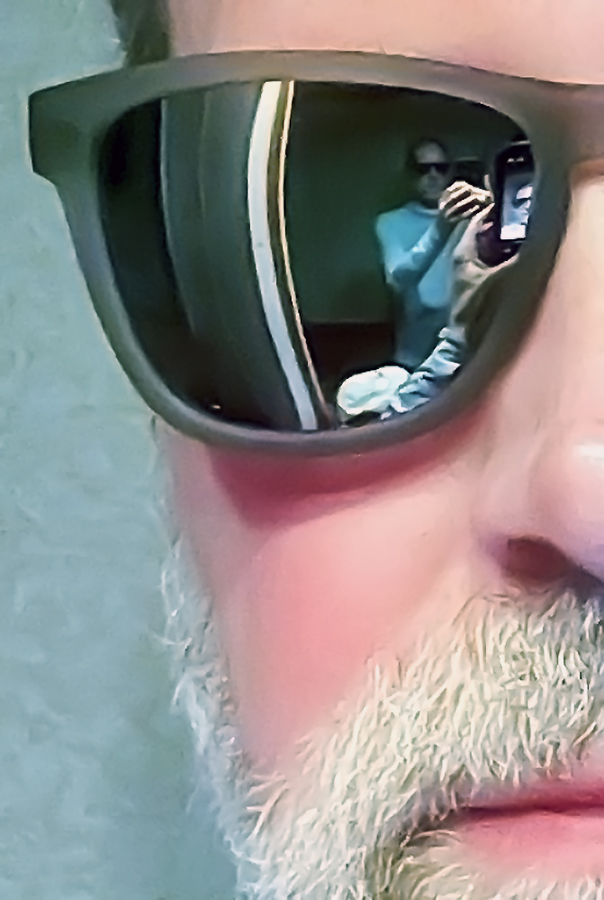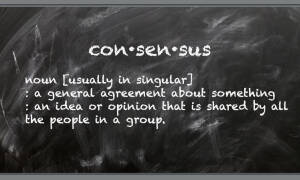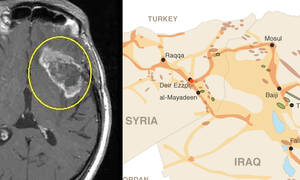On November 22, I “graduated” a challenging six-week course—post-operative radiotherapy for a rare neck cancer. My radiation therapists placed a yellow lei over my head, presented a certificate, and we tossed confetti.
For the therapists, this ritual punctuates the routine of the clinic and brings happiness to an otherwise dreaded procedure. For me, it was a moment of gratitude. I’d made it through with fewer side effects than most and hopefully cut my odds of recurrence in half.
Leaving this intimate celebration, the sight of familiar faces in the waiting room tempered my mood. While my treatments concluded ahead of the holidays, most of these kindred souls would be enduring their daily visits through Thanksgiving and beyond.
I didn’t know these folks, but I knew what they were going through. Small talk was minimal. Taut smiles and brief eye contact sufficed to cement our shared status. And turnover was swift, because business is brisk. The multi-million-dollar machines zapping us with multi-thousand-dollar invisible rays run continuously, like rides at a theme park.
The therapists who ready patients and equipment for each rendezvous are models of efficiency and precision. They make the trains run on time, while calibrating each patient’s treatment area to the millimeter. Just as the machine delivers radiation in fractional doses, the staff in blue scrubs share personal info in tiny increments. Thirty of these 15-minute episodes reveal characters you start to care about. And then, it’s over, like a canceled TV series.
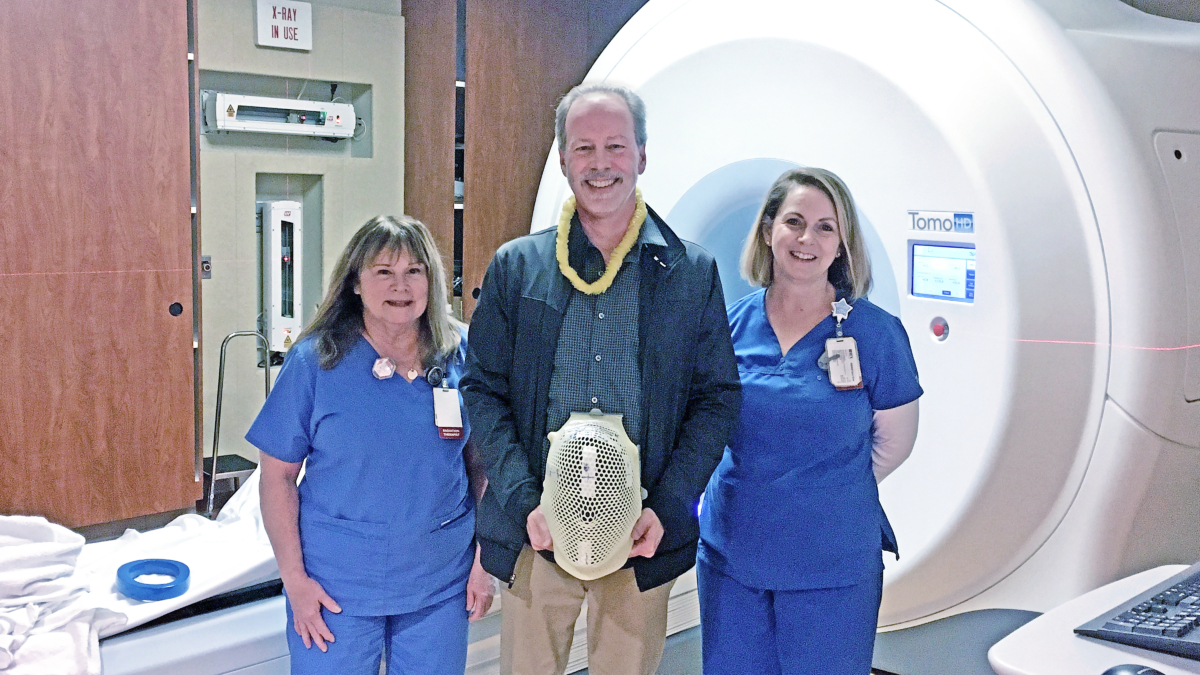
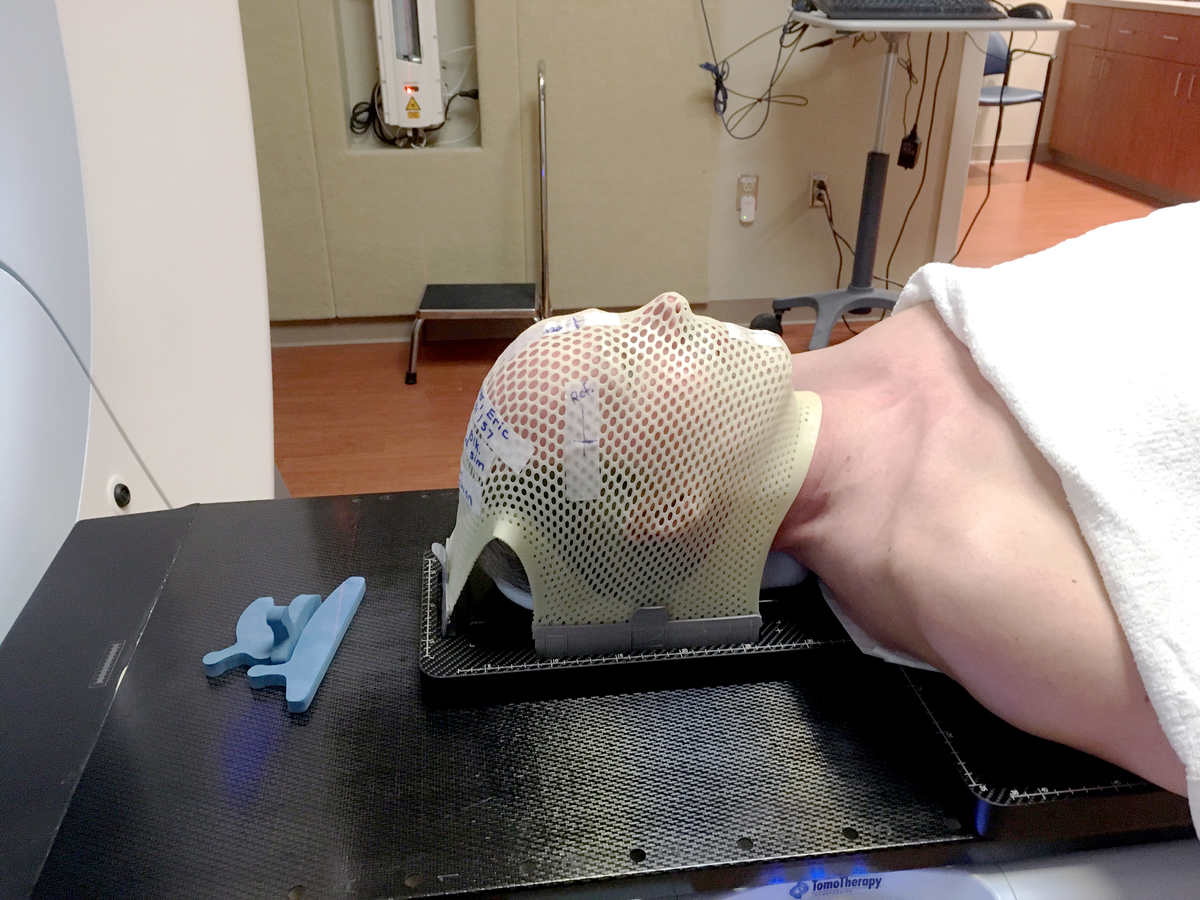
Cancer is a thief …
Cancer sneaks into your life before you sense danger. I’d felt a small lump under my jaw over a year before. I assumed it was a swollen lymph node and would go away. I forgot about it until one day I noticed it again. Was it larger?
In February, I consulted my doctor. She ordered an ultrasound and referred me to an ear, nose and throat specialist. The ultrasound confirmed it was in my submandibular salivary gland but not what it was. The ENT ordered a CT scan. The scan confirmed a cyst but not whether it was dangerous. Next, came a fine needle biopsy, which was inconclusive and unrepeatably painful. By now, it was almost May.
We decided to wait three months and scan again. During this time, the cyst did not change, but I did. I’d discovered a land mine in my yard, and I was unwilling to live with it. We scheduled surgery to remove the gland. All went well. The ENT told my wife that everything looked good, so he’d be surprised if the pathology did not confirm it was benign. Recovery should take about a week. The scar would fade over time.
Two days later, his call came late, during dinner. “Adenoid Cystic Carcinoma,” he reported, a cancer so rare he’d last seen a case in his residency, 17 years ago. Fortunately, we’d caught it early.
So, there we were. Cancer. This thief, which had already carjacked most of 2019, had just kicked us to the curb, taken our breath, left us in tears and rendered other worries inconsequential.
I was referred to a regional cancer center and a head and neck oncologist. He had seen only a few cases of ACC, a slow-growing but persistent, recurring disease. His department’s tumor board unanimously recommended radiation therapy.
Now, this cancer was robbing my whole family. Since 1991, my wife and I have hosted Thanksgiving for our extended clan, bringing out-of-state house guests. As we read about radiotherapy’s cumulative side effects, we realized this tradition would require a hiatus. Instead, relatives visited in three shifts in October, and I got some practice being thankful on days other than Thanksgiving.
And a (brutal) teacher
In the “school of hard knocks,” cancer rules. Attendance is mandatory, the subject material difficult, the experts often divided, and the teacher unforgiving.
First, you learn that while we routinely use the singular “cancer” there more than 100 types of cancers. After you’re diagnosed with one, your prognosis depends on many factors. For a tumor, like mine, its size, composition, structure, location, and tendency to spread along nerves or blood vessels, shaped my treatment decisions.
Next, you learn that there are no certainties. Choices come down to playing the odds. You must weigh whether the percentages—rates of survival, local recurrence, distant metastasis, etc.—were calculated using cases like yours or a lot of people with the same disease but different circumstances.
Scientific studies and conclusions vary, and doctors cite different numbers. For ACC, data is thin. In the United States, about 1,200 people are diagnosed annually, or only two per month per state. That means there are few clinical trials and mostly look-back studies that lump (pardon the wording) together all kinds of ACC patients.
Everyone experiences disease and health care differently. Below are the lessons my cancer has taught me. I share them in hopes they might help someone else.
Get regular checkups and be proactive.
If anything seems amiss, get it checked. Many health issues resolve on their own, but early detection of cancer might save your life and ease your treatment, while delay can be harmful or fatal.
Focus on self-control
You cannot control what happens to you; you can only control your response. “Why me?” hand-wringing stokes feelings of helplessness. Focusing on things you can control empowers you. Do whatever activities you can that bring you happiness. Refuse to let illness rob you of joy.
Maintain your perspective
If you ever feel self-pity, go to an oncology clinic and watch patients coming and going. You can always find people facing worse problems than your own.
Accept support graciously
Well-wishers will proliferate. A few will offer ill-informed advice or project their health concerns onto you. Most will make you feel better, and some might bring pie. Accept all expressions of support graciously. You need them.
Give thanks for the good stuff
Find something every day to be grateful for. Each day delivers special, even sacred, moments. Preoccupation with problems makes us miss them. Be attentive and store up these treasures while you can.
Make the most of every day
Finally, cancer stole one thing that I don’t want back—complacency. By that, I mean the tendency to ignore my mortality and live like I have all the time in the world. It’s folly to assume that good genes, diet, exercise, or a positive outlook can guarantee living to a ripe old age.
None of us knows how much time we have on this earth. Use all of it wisely.

